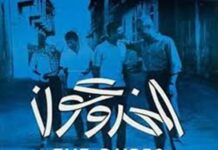Yumna Patel
Mondoweiss / June 20, 2023
For Palestinians living under Israeli occupation and apartheid, driving comes with more dangers than you can imagine.
The idea was inspired by this video on “Driving While Black” in America, reported by Dena Takruri for AJ+. In the report, Dena drives around with Black Americans, who tell her the fear and trauma they experience every day while doing one of the most mundane things you could think about: driving.
For most drivers, getting in your car for a ride doesn’t really require much thought. Of course, there are dangers while driving. Getting in an accident is no joke, but how often do you actually think about getting in a wreck when you’re driving? I would venture to say, not that much. Speaking for myself at least, when I’m driving back home in America, the thing I’m most worried about is trying to beat the Texas traffic.
But here in Palestine, it’s a completely different story. For Palestinians living under Israeli occupation and apartheid, driving comes with more dangers than you can imagine. Like Black Americans, Palestinians have to think about a million things before starting their engines: checkpoints, soldiers, settlers, settler-only roads, and more.
When you’re driving through a checkpoint, there’s a million and one things going on in your mind: are they gonna stop us? Am I moving too slowly or too fast? If I make eye contact with the soldiers will they stop me? Why is that sniper pointed straight at me? Better not brake or jerk, don’t want to arouse suspicion. I hope my car doesn’t break down. If I stop suddenly, or the car jolts or makes a sound, they might think I’m trying to attack them and shoot me.
When you’re driving down a road frequented by settlers, or located near settlements, you think: “I hope there’s no settlers throwing rocks at cars. If they see my license plate is Palestinian, I’m screwed. Do the Jewish settlers in the cars in front of me and behind me have guns? Probably. Oh no, there’s a bus stop for settlers. Keep driving past, one wrong move and the soldiers will shoot.”
These are just some of the things that cross my mind when I’m driving around the West Bank. And while I know what it’s like to experience these fears, because of my skin color and the fact that I drive a Palestinian-license plate car, I am not Palestinian. So, just imagine how bad it really is for Palestinians, who don’t have an American passport, the privilege that comes with it, or the benefit of the doubt when it comes to how you are treated by the occupation.
Over the years I have reported on countless stories of Palestinians being killed while driving: A young man on his way to his sister’s wedding, or friends on their way back from a cousin’s wedding. A mother on her way home from visiting family. A father on his way to work with his son, or two brothers stopped on the side of the road fixing their car.
Hearing stories like these, which are only a drop in the bucket, and knowing that driving in the West Bank, or even anywhere as a Palestinian, can be a matter of life and death, is what has pushed me to want to create a more in-depth report about this subject.
Over the past few months my video crew and I have been doing research for the report, finding people who have experienced the lethal dangers of driving as Palestinians. We’ve been preparing to film our report, but it turns out, we would experience the danger firsthand before we even began filming.
On our way home from reporting in the Nablus area last week, we were eating some sandwiches in the car when we were approaching a group of armed Israeli soldiers who were standing on the sides of the road. The following all happened in a matter of seconds:
To our right, we saw two soldiers who were at a safe enough distance that we could keep driving. But as we were driving, still eating, an armed soldier clad in the classic green Israeli army uniform stepped out from the tree-covered median to our left, right into the road.
We were inches, maybe even less, from running into him. I was in the passenger seat and was the only one who saw him. In a split second, I let out a loud gasp, and my partner slammed on the brakes. We threw our hands up in the air. The soldiers to our right raised their weapons, and the soldier to our left, now right in front of us, stared at us, seemingly also stunned. He then waved us past.
We slowly moved forward past them, but we couldn’t get away fast enough.
The soldiers were setting up a flying checkpoint right in the middle of the road. Had we not seen that soldier at the time we did, we would’ve hit him with our car. We all know what would’ve happened next. It was a uniquely Palestinian scenario – eating sandwiches, laughing in the car, and almost running into armed soldiers who came out of nowhere to set up a checkpoint on the road right in front of us.
As we drove home in shock, a hundred different scenarios played out in our minds. What would have happened if they did shoot? Would we have survived? Would we have immediately been labeled “terrorists” attempting a “car-ramming attack”? It made me think of all the times Palestinians have been killed while driving, when a driver’s error or being at the wrong place at the wrong time, just like we were, ended up costing their lives.
It was a reminder of how fragile life can be under military occupation, how quickly things can change, and how important it is to tell stories just like this.
Yumna Patel is the Palestine News Director for Mondoweiss












